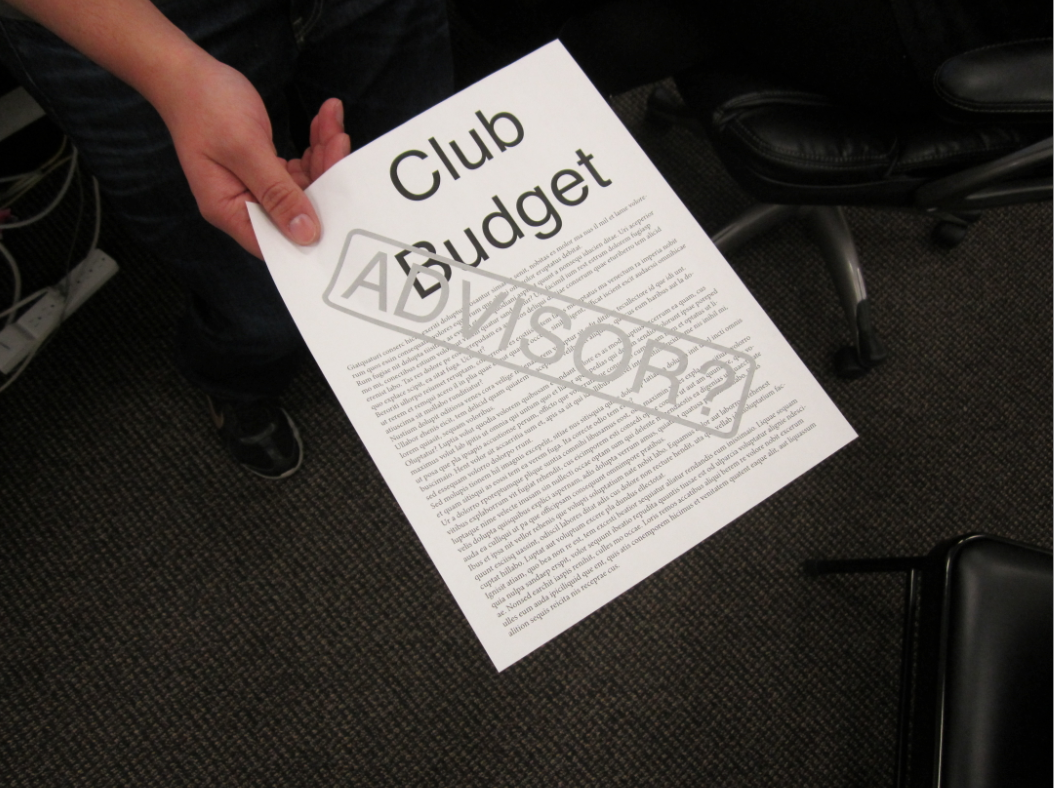SABC Meets to Amend Club Guidelines
February 22, 2012

On Feb. 15, the Student Activities Budget Committee (SABC) met to revise their guidelines for clubs. SABC is an independent committee that handles the policies, procedures and allocation of the money raised from the student activity fee charged to every Fordham student. The meeting addressed problems in receiving enough applicants for SABC as well as potential budget drawbacks. Notable changes were made to budget policies regarding deadlines and to the procedure for filling open seats in SABC.
It is now a policy that if a club does not have an advisor’s signature on its budget for two semesters in a row, SABC will hold their budget until they can get their advisor to sign it. This means that they will not receive their requesting funding. This is a result of clubs not spending enough time to compile their budgets ahead of time and then giving their advisor adequate time to review their proposals and then sign it. Also there will be a 20 percent deduction from late budget submissions unless the SABC board votes that there were extenuating circumstances by a two-thirds vote.
According to SABC Chairman Chris Chromey, FCLC ’12, clubs have become too accustomed to the quick responses of the Office of Student Leadership and Community Development and the United Student Government. As a result, they leave their budget until the last minute and expect that their advisor, who may be away or busy, to respond immediately with a handwritten signature.
Chromey said, “It’s always been a bit of a difficult issue to get advisors and clubs to work closely together, which they have to do to move through a budget. Some clubs ended up basically trying to cut the advisor out of the picture.” The purpose of the advisor is to provide the club with advice and experience and ensure that the club stays on track.
However, it is not always the club’s fault that they cannot contact their advisor. Sometimes the advisor just leaves. The purpose of this new amendment is to make sure that clubs and advisors have to work with one another and keep sight of their mission statement.
A club’s budget can also be frozen if it does not adhere to the following guidelines. It is now mandatory that a club’s entire editorial board attend training workshops.
In addition to several senior members of United Student Government (USG), SABC is includes three executive board members from clubs funded through SABC. Typically, candidates submit an application for one of the three at large seats. During the past two years, filling the 11 seats has been difficult. SABC is only an 11-person committee, so missing three seats would significantly affect the committee. Chromey said, “It skews the balance between administrators and students, and it also cuts out the opinion that you get from actual club leaders that would be benefited or hurt by any decisions SABC might make.” These seats are meant to act as a voice for the clubs and report back on club workings and the impacts of any changes SABC has made.
In order to guarantee that the three at large seats will be filled, SABC can now appoint clubs to choose one of their members to fill the position. Only if no club members can go are they exempt.
Lastly, club leaders can officially attend SABC meetings to help explain their budget to the committee, but not during discussion of the budgets within SABC and their voting. This clause allows club leaders to defend their proposals, but also provides the voting members with confidentiality and allows them to express their true feelings. Chromey said, “It’s engineered in a way to let those on the committee speak their mind and honest opinions, to be able to have an open conversation and voice their concerns.” Adding this amendment makes the former unwritten rule an official SABC policy.









